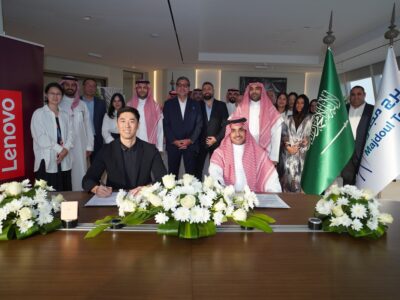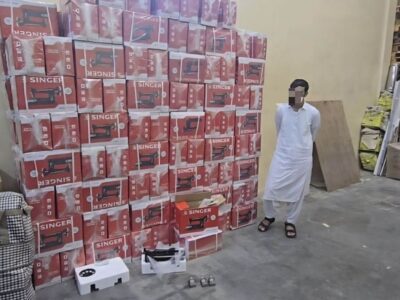The U.S. Treasury has granted UNIFI Communications permission to develop critical telecommunications infrastructure in Syria, according to documents seen exclusively by Arabian Business.
The decision marks a shift in Washington’s approach to technology access in the conflict-ridden nation.
The licence, issued by the Office of Foreign Assets Control (OFAC), authorises UNIFI Communications to serve as the prime contractor and acquire a five percent stake in the ALASIA Cable System, connecting landing stations in Pentaskhinos, Cyprus, and Tartous, Syria.
“With 85 percent of the country’s access dependent on outdated infrastructure and aging Chinese terminals, the existing cable risks imminent failure,” a source familiar with the matter told Arabian Business.
“The project aligns with humanitarian needs, connecting Syria’s people and businesses to global networks to support recovery.”
According to the source, the U.S. government’s OFAC license reflects “a commitment to care and infrastructure development for ordinary Syrians while adhering to sanctions policies.”
The project, jointly financed by CYTA of Cyprus and Syrian Telecom in a 50-50 split, must be completed by September 2026 under the licence terms.
“While the subsea cable laying itself takes only 3-4 weeks, preparations such as vendor sourcing, regulatory approvals, and export compliance will span 12-18 months,” the source added, indicating cable laying is projected for early spring 2026, pending improvements in Syria and the region.
Despite the authorisation, strict conditions remain. The licence explicitly prohibits the transfer of blocked property or transactions with sanctioned entities, including direct dealings with Syrian government instrumentalities beyond the specified telecommunications project.

“UNIFI will strictly adhere to the OFAC license by limiting all engagement, discussions, and transactions to Syrian Telecom and Alasia-related activities within the license’s scope,” the source said, addressing compliance concerns.
The company plans to “engage top international security firms and local experts to ensure operational security,” the source added, adding that UNIFI will “anticipate and mitigate risks through advanced and proactive measures” for the infrastructure project.
The approval comes as Syria faces renewed violence, with rebel groups recently capturing Aleppo from government forces in a major escalation of the country’s protracted civil war. The Assad regime continues to control much of the country with support from Russia and Iran.
Regional expansion
Looking ahead, UNIFI is exploring similar opportunities in the Mediterranean and other regions.
The source revealed that the company is exploring opportunities in the Mediterranean and other regions to provide U.S. sanctions-compliant telecommunications infrastructure where critically needed.
“While specifics cannot be disclosed, feasibility assessments and engagements are ongoing, adhering to USA sanctions regulations and ensuring no benefits to sanctioned entities for the regular citizens,” the source said.
Syria’s telecommunications infrastructure has suffered significantly during the 12-year civil war, which has displaced millions and led to severe economic instability.
The U.S. maintains a military presence in eastern Syria, primarily focused on counterterrorism operations against extremist militants, while Turkey has increased its involvement, particularly in areas near Kurdish-controlled territories.
The ALASIA Cable System represents one of the most significant U.S.-approved telecommunications investments in Syria since sanctions were implemented. The move could signal a wider policy shift toward allowing controlled development of civilian infrastructure in sanctioned regions, though under strict oversight.









